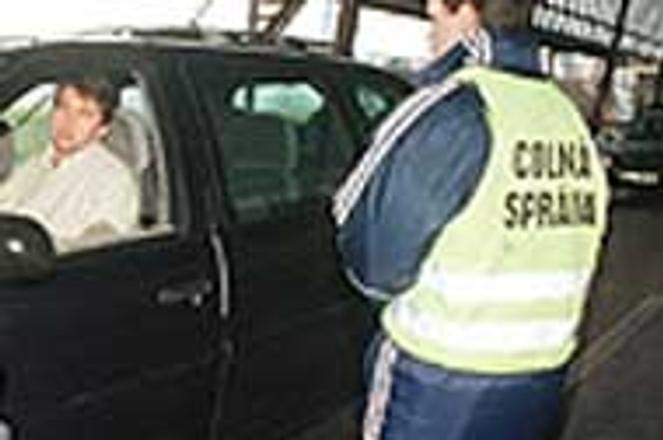Foreigners will no longer be able to buy visas at the border this year.photo: TASR
Life will not get any easier for foreigners living and working in Slovakia in the year 2000. Beginning in February, the Interior Ministry will be checking up on the Slovak addresses of foreigners with long-term stay permits, and will be summoning expats to interviews at police stations. Those found to have 'serious inconsistencies' in their documents may be forced to leave the country.
Miroslav Samek, the head of the Slovak Border and Foreign Police Department, told The Slovak Spectator on January 3 that the sweep was being planned in order to update the existing police database of foreigners living in Slovakia.
"We have to do this because many foreigners do not live at the address where they are registered," said Samek. "Under the [Slovak] residence law, you [foreigners] have to live in a place that is owned by one person exclusively. Another problem is that people who offer flats for rent often do not pay taxes from this income, and the residence law requires that your landlord pay his taxes regularly. We also want to come down on these people through our checks," he added.
The police action is bound to provoke anger and confusion from the foreign community, which already faces many bureaucratic hurdles to obtaining Slovak work and residence permits. Particularly troublesome is the residence law cited by Samek. In Slovakia's tight private housing market, many landlords are unwilling to issue a permit to foreigners and pay the resulting tax dues. Expats are thus forced to choose between institutional accomodation, like a student hostel or dormitory, or unofficial private housing.
"It's already very tough for foreigners to get a residence permit," said an Indian doctor living in a western Slovak town. "I respect the law, but blind implemenation of the rules just makes life harder for foreigners. Xenophobia is growing in this country, and I have to ask if all Slovaks live at the address registered with the police."
Robin Shepherd, a foreign journalist living in Bratislava, agreed that the checks seemed rather extreme. "In a country where organised crime is so high, the police surely have better things to do than checking whether two or three foreigners live where they say they live," he said. "The police must also make sure that these checks do not discriminate against foreigners, and that they are comprehensible for everyone."
Getting in line with EU
Border Police Chief Samek said that the checks were part of an overall attempt to bring Slovakia's visa regime in line with that of the European Union. He explained that many neighboring countries, such as Austria, Poland and Hungary, already had a similar system, while the Czech Republic and Slovakia were putting the necessary rules in place.
"With the old system the police were not able to control in depth the foreigners who held a permanent or long-term stay permit," he said. "The system that we are adopting now is common in developed European countries and it follows the legislation and provisions of the Schengen Treaty."
After foreigners have been checked out, he said, they would be summoned to one of eight regional police headquarters and issued a visa sticker rather than a rubber stamp in their passports (the stickers are believed to be more difficult to forge). The checks would apply to all 30,000 foreigners registered as holding a work permit and a long term or permanent stay document. "We will summon even those citizens who did not need a visa to enter Slovakia [such as Germans, Americans or British citizens - ed. note]," Samek added.
As part of the new Slovak visa regime, as of January 1, 2000 foreigners travelling to Slovakia are no longer able to obtain visas at the Slovak border. At a December 27 press conference, Samek told journalists that foreigners wanting to visit Slovakia would have to apply for a visa at a Slovak embassy in their country of origin - a requirement common in the countries of the European Union.
This change has also met with dismay. Ján Bočkay, director of the Slovak Tourism Agency, told the press on December 27 that the decision to stop granting visas at border crossings would have a negative impact on the development of tourism in Slovakia as it would eliminate many people who decided to visit Slovakia spontaneously.
But Samek argued that Bočkay's fear was not justified. According to border police statistics, he said, some 44 million foreigners crossed the Slovak border in 1999. Out of this number, 70,000 were visa-holders, of whom only 2,915 obtained their visas at the border.
Moreover, visas will be granted at certain border crossings in emergency cases, and it will also be possible to obtain visa stickers at the airports in Bratislava, Poprad and Košice. Samek said that visas would also be issued for "humanitarian reasons": in case of the sudden death of a relative in Slovakia, for example, the family living abroad would be able to get visa stickers at the Slovak border. He did not say how the bereaved relatives would prove to border police that their next of kin had died.


